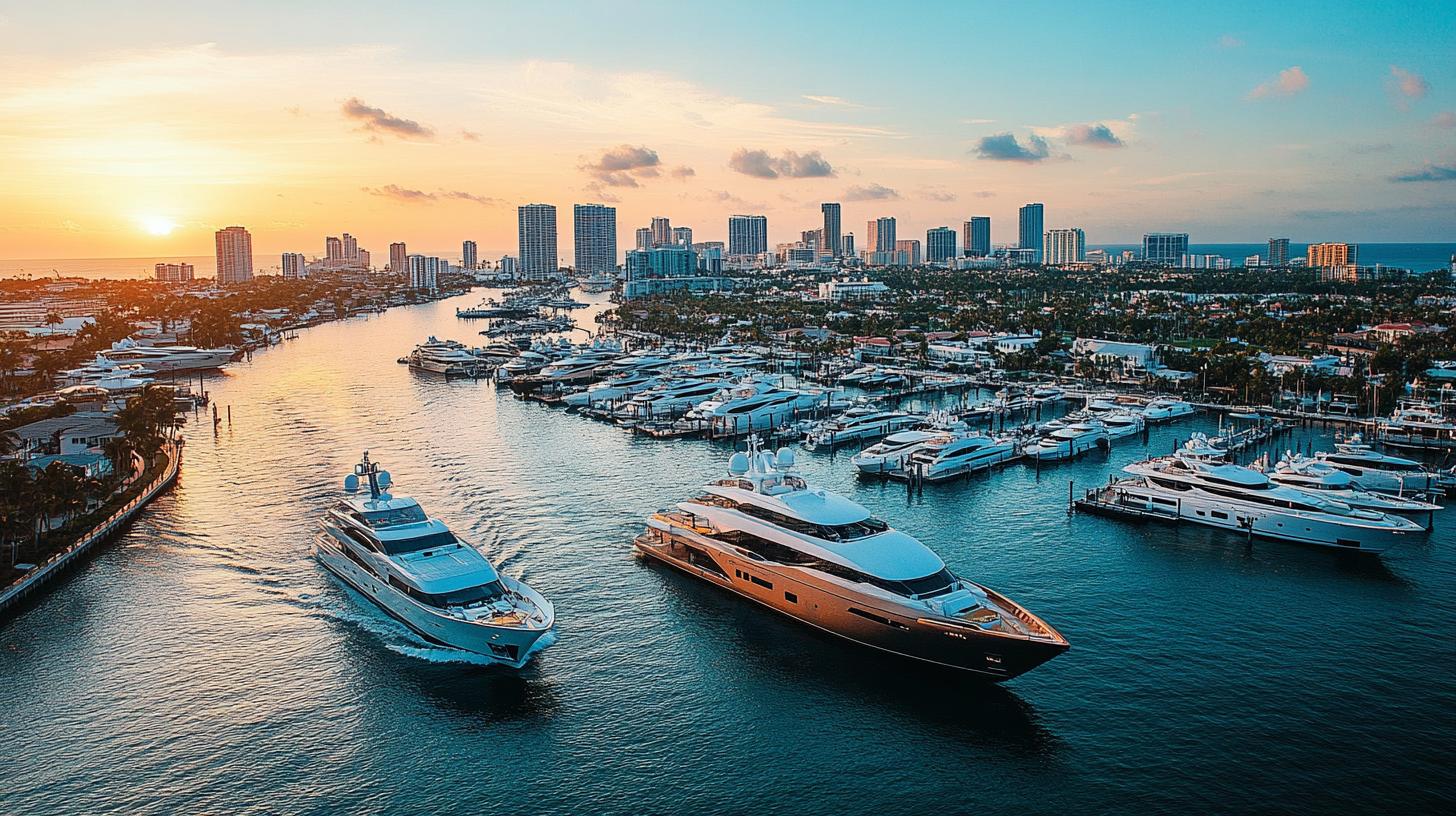The Fort Lauderdale International Boat Show stands as the largest in-water boat exposition worldwide, showcasing over 1,300 vessels ranging from kayaks to luxury superyachts. Set across 90 sprawling acres, this five-day event welcomes more than 100,000 visitors, supported by an extensive transportation network to help navigate the impressive 3 million square feet of exhibit space.
While traditionally focused on fuel-powered crafts, the show is gradually embracing cleaner technologies as electric and hybrid boats gain visibility. A burgeoning interest in eco-friendly solutions is reflected in the diverse range of exhibitors, some of whom display cutting-edge electric and hybrid technologies for keen enthusiasts to explore.
At the heart of the electric revolution is Axopar with its innovative AX/E series of all-electric boats. The Axopar 25, renowned for its premium design and powered by the formidable Evoy Storm 300+ horsepower outboard, illustrates modern sustainability in motion. In partnership with Evoy, Axopar is driving the market forward, especially following Evoy’s collaboration with Vita Power.
Another standout is the Candela C-8, a hydrofoiling speedboat famed for its remarkable efficiency and eye-catching performance. Reducing energy use by up to 85%, the C-8 exemplifies the future of efficient boating, making significant inroads in the US market.
Greenline Yachts, an innovator since 2008, presents its impressive GX Superyachts line at the show. These vessels promise an unrivaled balance of luxury and eco-awareness with advanced hybrid drives and expansive solar arrays. Highfield Boats also contributes to the shift with the Highfield 660, an electric powerboat designed for family enjoyment and water activities.
Overall, the Fort Lauderdale International Boat Show is ushering the maritime world into a sustainable future with these electrifying developments.
The Silent Surge: Behind the Scenes of the Electric Boat Revolution
When we think of revolutions in transportation, boats aren’t usually the first thing that comes to mind. Yet, beneath the surface of the maritime industry, a quiet transformation is taking place, promising to reshape our relationship with the waters. The ramifications of this shift impact not only the environment but also communities, businesses, and enthusiasts alike.
The move towards electric and hybrid boats represents more than just a technological evolution; it’s a necessary push towards sustainability in the face of growing ecological concerns. How does this shift affect the landscapes and livelihoods connected to maritime activities? Let’s dive deeper to find out.
Impact on the Environment and Coastal Communities
One of the most significant advantages of electric boats is their minimal environmental footprint. Traditional fuel-powered vessels are notorious for their high emissions and potential oil spills, which can severely harm marine ecosystems. By reducing emissions and eliminating the risk of oil spills, electric boats help preserve aquatic life and the natural beauty of our coastlines. This shift could dramatically improve the quality of waters near busy boating hubs and islands.
However, transitioning an entire industry is not without its challenges. Electric boats require significant infrastructure changes, such as charging stations at ports and marinas. This adaptation can be costly and necessitates investments from both the public and private sectors.
Economic Opportunities and Challenges
From a business perspective, the electric boat market offers substantial economic opportunities. Companies that adapt to this new demand can enjoy lucrative new markets and bolster their eco-friendly credentials. On the flip side, businesses accustomed to traditional boat manufacturing may face hurdles in retooling production lines and retraining workers, potentially leading to short-term job losses.
As the technology matures, will consumers buy into the hype of electric boats as readily as they have electric cars? Industry insiders are optimistic, citing the growing number of startups and well-established brands investing in this technology.
Controversies and Concerns
Despite its appeal, the electric boating industry isn’t free from controversy. The production of the batteries required to power these boats raises concerns about the mining of raw materials, such as lithium and cobalt, and their environmental impacts. Moreover, questions remain about the lifecycle of these batteries and recycling solutions available.
A related controversy is whether the current energy grid can sustain the added demand from millions of electric boats in the future. Critics argue that without concurrent investments in renewable energy sources, the environmental benefits of electric boats might be undermined if they’re charged using fossil fuels.
What Lies Ahead?
Many boaters question whether the performance of electric boats can match their fuel-powered predecessors. With advancements in battery technology and motor efficiency, companies like Axopar and Candela are proving that electric boats can not only meet but also exceed expectations in performance, range, and power. These innovations hint at a future where electric boating becomes the norm rather than the exception.
Exciting Facts and Resources
For those keen to keep a pulse on the ever-evolving boating technology, attending boating shows or following sites like NMMA can provide exclusive insights and updates.
As the industry sails into uncharted waters, the dialogue around electric and hybrid boats will likely intensify, balancing innovation with environmental responsibility. Will maritime enthusiasts and industry leaders rise to the challenge? The coming years promise to be both exciting and pivotal.







